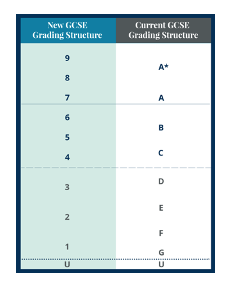The Isle of Man's education system has a number of close ties with the UK's, particularly in relation to aspects of the curriculum. IGCSE /GCSE and A-level examinations are entered through UK examination boards. However, the Island has its own curriculum, Essentials for Learning, which affords a more holistic way of educating children to ensure they develop 'the 6 Rs' – readiness; relationships; resourcefulness; resilience; remembering skills and reflectiveness. The 6 Rs are then linked to employability skills in key stage 4, helping student to prepare for the transition into further education, training or employment at the end of year eleven. The six employability skills are teamwork, communication, problem solving, ability to learn, resilience and self awareness.
There are qualifications in literally hundreds of subjects; they also come in different sizes and levels. In very simple terms, qualifications can broadly be divided into three types:
- academic - covering knowledge of such subjects as geography or English
- broad-based, work-related - covering a broad area of work (such as business or health and social care)
- job-related - covering the knowledge, skills and understanding needed to learn about or train for a specific job or job area.
The Regulated Qualifications Framework (RQF) in England, Credit and Qualifications Framework for Wales (CQFW) and Framework for Higher Education Qualifications (FHEQ) all help you to see how qualifications compare in terms of level (i.e. challenge/difficulty) and size. The levels are:
- entry level (split into entry 1, 2 and 3)
- level 1: e.g. GCSEs at grades 3-1/D-G
- level 2: e.g. GCSEs at grades 9-4/A*-C (note that a grade C is equivalent to a 5 or 4 in the new grading scheme in England)
- level 3: e.g. AS/A levels
- levels 4-8: HE qualifications (including degree, Higher National and postgraduate qualifications) and certain professional qualifications
This UK qualification comparison chart provides an overview of qualification levels in England, Scotland and Wales.
IGCSE Examination changes from September 2022
Isle of Man Secondary schools will switch to different science and history examinations from September 2022 following a recent review of IGCSE and GCSE courses led by senior school leaders and subject specialists. The review represents a new way of working for the Department of Education, Sport and Culture (DESC) and schools, and will enable the schools to take advantage of existing and emerging qualifications. The opportunity for regular review whilst maintaining stability across our education system, will empower schools to make the best decisions for their students based on learners’ needs, interests and aspirations.
Frequently Asked Questions
Why has this change been recommended and who made it?
The IGCSE/GCSE review that has led to this change was informed by an issue highlighted within the Beaman’s report into the Department of Education, Sport and Culture in 2020.
As a response to this, the current IGCSE/GCSE examination offer across all Island schools was reviewed at subject level by subject specialist Heads of Department within schools. They explored all IGCSE/GCSE specifications available to them and following this, made recommendations to a School Senior Leader Review group. This group determined different possible options and made a recommendation for a way forward, to be considered by the Department of Education, Sport and Culture Political meeting, which was then accepted.
Does this affect students already undertaking their GCSE?
This change will not affect students already undertaking IGCSE/GCSEs in current Year 10 and 11 groups.
Any change will only be implemented for IGCSE/GCSE courses starting in September 2022 in a limited number of subjects (science and history courses). Schools will manage the transition into any new course and will inform students and their parents of any changes through their Year 9 options process.
How do 9-1 grades compare with A*-G and how are employers going to understand what they mean?
9-1 grading and A*-G grading equivalencies can be found in the table below:

Ref: Pearson Edexcel
From September 2022, science and history IGCSE and GCSE courses will be graded 9-1, with grades 9-4 being equivalent to A*-C (Level 2 pass) and 3-1 being equivalent to D-G (Level 1 pass).
Our Island’s schools already use a range of other examination boards for other non-GCSE Level 1 and 2 qualifications (e.g. BTEC and SQA qualifications) and employers are familiar with a range of different grades.
Schools will continue to communicate with students, parents, employers and wider stakeholders about grading systems for different qualifications. A comparator of grading systems across different Level 1 and 2 qualifications can be found here
Why has there not been a public consultation like in 2014?
In 2013, the then UK Secretary of State for Education, Michael Gove, announced widespread educational reform, including the removal of modular GCSE courses and the shift to examinations as the main form of assessment for many qualifications, alongside a new grading system. This meant the separation of the three nation GCSE examination system with England going it alone with a system that, at the time, was untried and untested.
Northern Ireland and Wales chose to maintain the status quo with their examination systems including the A*-G grading system, although since then, 9-1 graded qualifications and A*-G qualifications have become available to learners in both of these jurisdictions. The 2014 consultation was in response to this significant reform agenda in England.
This current review has enabled subject specialists and senior leaders from our schools, to consider the current examinations on offer and ensure that as further changes emerge across the full range of international and national exam boards, the Island is in the best position possible to continue to offer a broad, balanced curriculum that meets the needs of our learners.
Most subjects in our schools will maintain their current IGCSE/GCSE offer in the short term, but as specification changes are announced in the next few years, schools will have an opportunity to review new options and determine if a change to a new specification will be advantageous to our Island’s students.
Will my child achieve a better grade with this change?
Students will be awarded the grade that they deserve by individual exam boards, based on their performance in examinations and other assessments. There is significant comparability between all IGCSE/GCSE qualifications and it is expected that students would achieve equivalent results with different examination boards.
Why does the exam board for science need to be the across all schools, but not history?
Having a consistent core offer across all of our Island’s schools supports development of resources, materials and the training of staff across all schools in the compulsory core subjects, which all students have to study. Nearly half of the lessons that students attend each week in Key Stage 4 are core subjects (English Language, maths and science).
Other subjects such as history are optional subjects at IGCSE/GCSE, with some students choosing to study history and other students choosing another subject in that option block.
Does this change mean a change in curriculum?
This change does not mean a change in curriculum – it is just a change in the examination board that schools are using. Any examination board change made will be in line with the current legislation.
Will this change save money?
This change will be cost neutral over the coming years.
How do you ensure stability (i.e. will subjects keeping changing every couple of years)?
Common processes and procedures will be in place to support any future examination board reviews. The opportunity for regular review, whilst maintaining stability across the Isle of Man education system, will empower schools to make the best decisions for their students.

